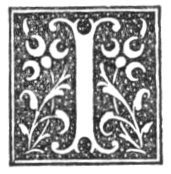
Sacred Texts Legends and Sagas Celtic Index Previous Next

 |
Once a year, in spring, there was the great yearly washing, when every piece of dress, every blanket, everything of bedding, and everything of cloth kind that could be washed, and required washing, were subjected to a thorough cleansing. A bank near the well, or a spot on the bank of a neighbouring stream or river or loch, was chosen. A hole was dug in the earth, and a few large stones were placed at the sides of the hole to confine the fire, and to serve as a support for the "muckle pot" or the kettle. A large fire of peat was kindled in this hole, and the pot or kettle, filled with water, was placed over it. Tubs were standing all round, some on stools for hand-washing the lighter articles that had to be washed by the hand, and some on the ground for washing by the feet the heavier articles, and of such as were more than usually soiled. From early morning till night the work went on, some busy washing with the hands, some treading with their feet, some spreading the washed articles to bleach and dry, watering them, turning
them; and when dried, shaking them, folding them, and storing them up. Such of the articles as required more than one day to bleach and dry were left during night. To guard them from thieves a few of the young folks kept watch and ward, passing the night in song, or in telling ghost and fairy stories, or in listening to the sweet music of the fairies if the clothes happened to be near a fairy hillock, for the fairies were usually kind, and took delight in doing mortals good.
A washing rhyme was:--
In washing, if the soap did not "rise" on the clothes, there was a "fey" person's clothes in the tub.